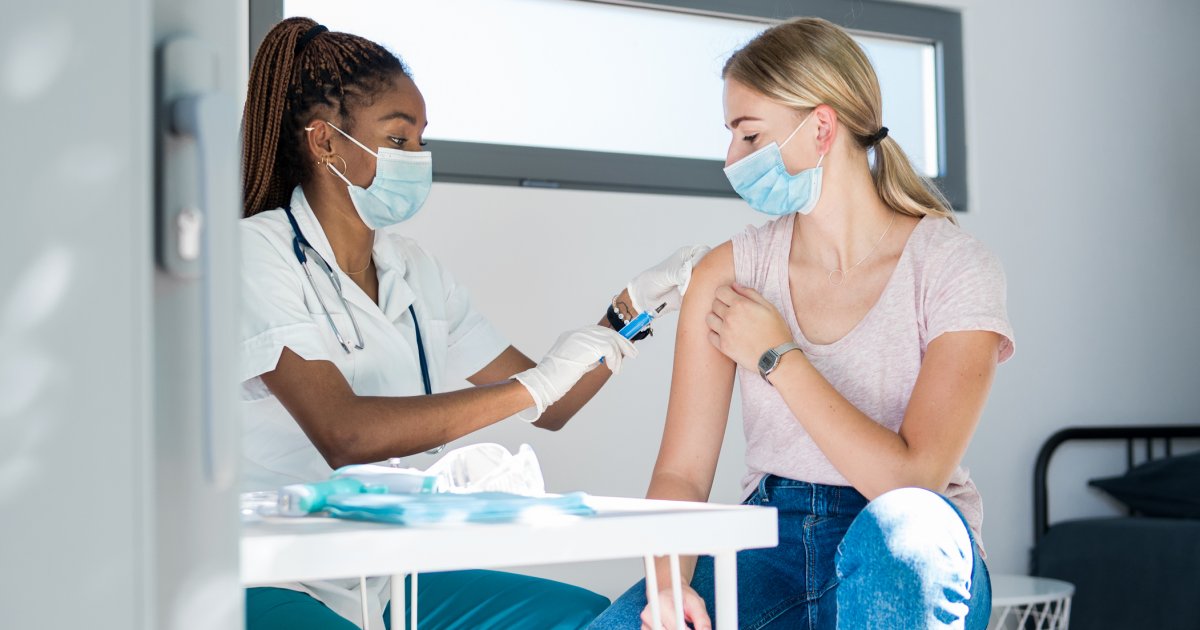COVID-19 Vaccine Questions Answered
- It can take weeks for a COVID-19 vaccine to kick-in and create full immunity
- Multiple groups and expert panels have recommended that all cancer patients receive the vaccine.
- Even after having the vaccine you can still get COVID and transmit the virus
How does the Immune System fight infection?
When germs such as bacteria or viruses invade or infect our body, they multiple and can cause damage. When these unwanted invaders enter our bodies, this is called an infection. Thankfully, our immune system has an arsenal of weapons it uses to eradicate these unwanted germs. Part of the army that our bodies use to defend against germs are white blood cells. In COVID-19 infection, the first time our body is infected with the virus it can take several weeks for the body to make and use these germ fighting cells. However, after the infection is eradicated by these immune cells our bodies create and store so-called memory cells that can quickly be dispatched to attack the virus if you get exposed a second time. These memory cells are the basis of how the COVID-19 vaccine works and how our bodies are able to develop immunity against certain germs.
Read MoreHow does the COVID-19 Vaccine work?
The COVID-19 vaccine helps our bodies to create these memory cells without our having to be infected and made sick by the virus. There are multiple types of vaccines that work in many different ways to achieve the same goal of having the body create memory cells that are ready to attack if the body is exposed to a harmful virus like the one that causes COVID-19. Sometimes this process can take several weeks and sometimes triggers the body to have an immune response to the vaccine. This is why there are reports of people having low grade fevers and not feeling well after getting the COVID vaccine. The COVID-19 vaccine is an mRNA vaccine that helps the body recognize and make memory cells to certain proteins found in the Coronavirus. Then, if the body is later exposed to the actual virus these cells quickly attack before the virus can cause damage and sickness. Related: From COVID-19 to Cancer, Could mRNA Carry the Answer?Am I immune after the first shot?
The process to build memory cells often takes several weeks and sometimes requires more than one dose of a certain vaccine. This is the case with the vaccine against the virus that causes COVID-19. The first dose or shot triggers your body to start creating memory cells and developing protection. Remember, this process can take several weeks so during this period you are not protected by the vaccine. The second shot or dose further enhances the immune response to the virus and is needed to get the most protection possible from the vaccine. Although it is much more complicated then this your body needs time to develop the tools necessary for immunity after the vaccine and you should get both doses as recommended.
If I have cancer what do I need to know?
Related: Coronavirus Guide for Cancer Patients
Cancer patients are at high risk for developing severe symptomatic COVID-19 if infected with the virus. Multiple groups and expert panels have recommended that all cancer patients receive the vaccine. Just like for people without cancer, cancer patients should take precautions and receive both doses if recommended. Sense it takes time to develop protection against the virus people with cancer should continue to make every effort to reduce their risk of exposure even after receiving the vaccine. If you are a cancer patient be sure to discuss the vaccine with your physicians.
Can you still pass COVID-19 on even after receiving the vaccine?
Whether you have received the vaccine or not remember to continue to practice social distancing and wear a mask.
Even after having the vaccine you can still get COVID and transmit the virus. First, vaccines are not 100% effective, and this means that some people will still develop COVID-19 after getting the vaccine. If you develop COVID-19 after having the vaccine you are still able to transmit the virus to others. What is less clear now is if those who get the COVID-9 vaccine and do not later develop COVID infection can still spread the virus. At the moment we need more data to help better understand this important issue. However, the take home message is that until we know more and a much larger proportion of the population is vaccinated we should assume it is still possible to get exposed from the virus by anybody at any time regardless of if they have been vaccinated. Wether you have received the vaccine or not you should still practice social distancing, wear a mask, and help prevent the spread of the virus.
Learn more about SurvivorNet's rigorous medical review process.


